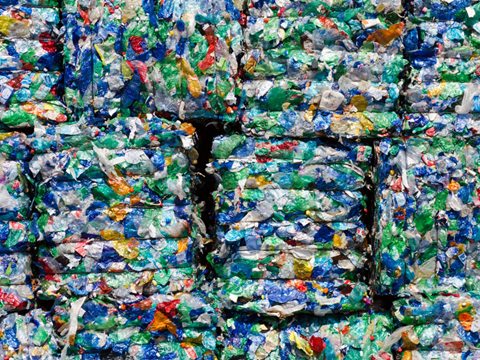
As the EU faces soaring energy costs and competition from low-cost recyclate imports, Plastics Recyclers Europe’s president, Ton Emans, presents a six-point checklist to protect Europe’s plastics recycling industry, from improved transparency to clean energy.
Plastic, the third most widely used material in Europe, occupies a central position in Europe’s industrial landscape. It plays a central role in sectors such as packaging, automotive, construction, electronics, or healthcare.
When plastics reach the end of their useful lives, plastics recyclers reprocess them into high-quality materials used to produce new articles, hence keeping them out of landfills and incineration. The massive investments and continuous innovation in the sector have made recyclers key facilitators of the transition towards circular plastics and industrial sovereignty in Europe.
Yet, this strategic industry is now at a breaking point. Unfair competition from growing imports of recycled polymers and economic pressures shrink domestic production, thereby compromising the EU’s industrial independence, forcing company closures, and causing losses of green jobs across the territory.
Market data paints a stark picture. The growth rate of capacity and turnover have decreased, while investments – once the engine of technological and environmental progress – have been slashed in half.
Estimates for 2024 and forecasts for 2025 suggest continued stagnation, which is likely to deepen. All these factors threaten to accelerate Europe’s deindustrialization and undermine the EU’s environmental and circular economy goals.
In response to this situation, Plastics Recyclers Europe (PRE) outlined six strategic areas for immediate action in a sobering paper released recently. The organization demands that policymakers urgently protect this crucial sector and ensure the survival of the European Union’s industry.
Six Game-Changing Strategies to Combat the Crisis
To shield the European plastics recycling industry, effective and strengthened trade and market defence tools must be put in place to preserve the EU’s environmental requirements and health and safety standards for recycling and recycled plastics, as these are often not met by imported plastics.
Hence, to ensure compliance with EU legislation, the focus must be on improving import transparency and verification, as well as establishing tariff adjustment mechanisms for imports of recycled plastics and products containing recycled content.
The economic pressures suffocating the European plastics recycling sector must also be addressed urgently. Energy costs in Europe are among the highest in the world, having more than doubled in 2025 compared to pre-pandemic levels.
To counter this situation and regain global competitiveness, recyclers must be provided with inexpensive and clean energy, subsidies and tax reliefs for recycling activities, and measures to mitigate price pressure on raw materials.
Another key aspect is harmonizing Extended Producer Responsibility (EPR) schemes across Member States. These systems, which ensure producers contribute financially to recycling their products, should reward the use of EU-sourced recyclates and encourage companies to prioritize locally sourced recycled materials.
This would support the creation of local jobs, reduce carbon emissions, and keep the benefits of recycling closer to home. Penalties for breaking the rules should also be harmonized in the EU to enhance clarity and solve current inconsistencies.
Finally, it is essential to cut red tape for European recyclers, as they face mountains of paperwork and lengthy waits to obtain the necessary permits to operate. This discourages investments and slows down progress in this essential industry.
The Way Forward: Action, Determination and Commitment
A revitalized EU plastics recycling industry, driven by green innovation and fair competition, is essential for maintaining Europe’s strategic autonomy in a rapidly evolving global market. The collapse in investments demands decisive measures, as this sector is essential to achieving climate goals, safeguarding public health, and preserving Europe’s leadership in the transition to a circular economy.
We urge the policymakers to implement these six points of action without delay and recognize plastics recycling as a strategic sector for the EU’s industry. Environmental progress and innovation achieved over the past decade are at stake. Will the EU rise to the challenge?
If you liked this story, you might also enjoy:
The ultimate guide to the Packaging and Packaging Waste Regulation in 2025
How are the top brands progressing on packaging sustainability?
Everything you need to know about global packaging sustainability regulation in 2025
The key to increasing the use of reusable packaging in supermarkets














No comments yet